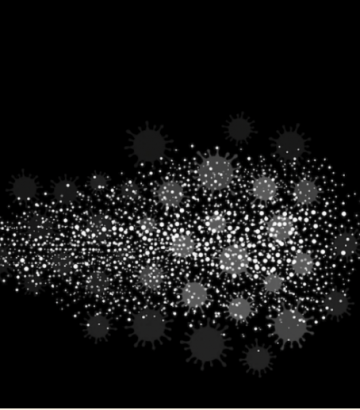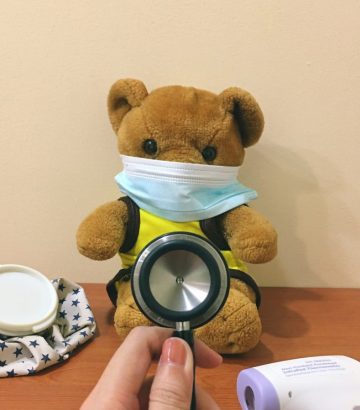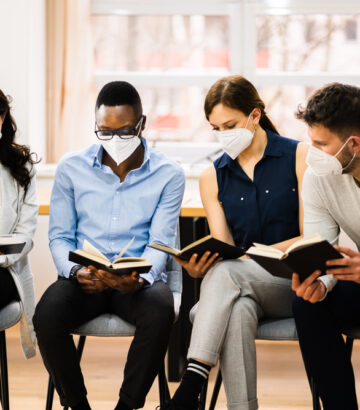What is the Difference Between an Antigen Test and a PCR Test?
We are now over two years into the COVID–19 pandemic. As we map our way forward, antigen tests (also known as RATs, or Rapid Antigen Tests) have been one of our most powerful tools for slowing the spread of this virus and keeping our loved ones safe.
Unfortunately, recent data has suggested that antigen tests have become increasingly unreliable, and may provide false-negative results even when you are infected. This means that, even if you received a negative result, you could still have COVID (and infect others).
Antigen tests are the most commonly available COVID tests. If you have a basic understanding of what they are and how they work, you will be able to make better decisions about how to test yourself and when to test yourself, so your test results are more likely to be accurate. A false negative RAT result not only endangers you, it endangers those around you!
What is a Rapid Antigen Test (RAT)?
Rapid Antigen Tests are the common COVID tests that you do at home. They do not need to be sent away to get the test results.
Antigen tests do not need to be administered by a health care professional. You can swab yourself or have someone do it for you. Then you let the swab sit in a special solution for a few minutes, before dropping the solution on a test strip. If a line appears on the test strip – no matter how faint! – then the result is positive for COVID-19.
They are called “rapid” antigen tests because the whole process – from sample collection to reading the results – takes about 20 minutes.
How is an antigen test different from a PCR test?
Both antigen tests and PCR tests (the initials stand for “Polymerase Chain Reaction”) can use material collected by swabbing the nasal cavity and/or throat. However, what the tests actually look for is quite different.
Antigen tests detect one or more specific proteins that are part of the SARS-CoV-2 virus. These proteins are “antigens,” and they are what trigger the immune response when we are infected, including the production of antibodies.
In contrast, PCR testing detects actual genetic material (RNA) from the virus. This testing method is quite sensitive, so it is more accurate than antigen testing. However, keep in mind that PCR tests do sometimes produce false negatives, too.
Antigen tests are more commonly used for public screening or for at-home diagnosis. PCR tests are more often used in health-care settings. PCR testing has been more expensive than antigen testing, and usually takes several days to get results. However, there are also PCR tests that can be ordered online and can be done like rapid antigen tests at home to get results in about 20 minutes.
While PCR tests have been more expensive, some prices have been reduced recently, and they may be paid for by insurance companies. In the U.S. insurance companies and health plans are required to cover 8 free over-the-counter at-home tests per covered individual per month.
Are antigen tests accurate?
Antigen tests require a lot of virus to be present to produce a positive test result. This means that, during the first few days of a COVID infection, they are less accurate.
If there is not enough virus present yet, RATs may show a false negative result – even when a person is symptomatic! They also may show a false negative result if the sample was not collected properly – for example, by not swabbing deeply enough, or for sufficient time.
Although antigen tests are not so reliable for negative results, they are very accurate when it comes to positive results. If you get a positive RAT result, you almost certainly have COVID.
If you get a negative test result, but either know or suspect you have had a COVID exposure or are experiencing COVID-like symptoms, your antigen test result may be a false negative. You may be contagious to others! In that case, you should isolate and limit social contacts (behave as if you are contagious). If possible, order online or schedule a PCR test, since it is more reliable. If you cannot access PCR testing, then proceed with daily antigen tests. If you continue to have no symptoms, or the symptoms you did have are subsiding, and you are still testing negative after a few days, then it is reasonable to assume that you do not have COVID.
Do antigen tests work for detecting Omicron?
Antigen tests do not work as well for Omicron variants as they did for earlier variants. This may be in part because genetic mutations have changed the viral proteins (the antigens) so the tests are less sensitive for the Omicron variants. It may also be because the virus multiplies more quickly in the throat in Omicron infections, so nasal swabs don’t catch it as early.
Although antigen tests can detect Omicron, they also generate a lot of false negatives. When you test yourself with an antigen test, to get the best quality test results, make sure to:
• Read and follow the test directions
• Don’t eat or drink for 10-30 minutes before the test
• Swab the back of your throat and both cheeks before swabbing both nostrils, all with the same swab.
When should I use antigen tests?
Antigen tests can be useful in the following settings:
• You should use antigen tests any time you know or suspect that you have been exposed to someone with COVID, or when you are experiencing COVID-like symptoms. Remember that it can take several days for enough virus to build up in your body for an antigen test to be able to detect it. There is therefore no point in testing yourself the day of your exposure! Wait at least one day before administering your first test.
• Some people use antigen tests as a screening tool before a social gathering, e.g. a family dinner. However, keep in mind that these tests may yield false negatives. There is a very real possibility that someone who tests negative may still be contagious with COVID. Make sure that you, and other people at the gathering, understand these risks when making decisions.
If you have tested positive for COVID, antigen tests can help you determine how long you should quarantine for. Although some governments have issued guidance that you can emerge from isolation five days after your first positive test, there is absolutely no scientific basis for the infectious period lasting only five days! Most studies show that people with COVID continue to be infectious for 10 to 14 days after their first positive test.
Because RAT tests have higher false negative rates, PCR tests are the best way to get an idea of whether you are still infectious. If you don’t have access to PCR testing, you can start daily RAT testing on Day 10 of your infection. Once you get a negative result, your viral load is decreasing and you may cautiously emerge from isolation – still avoiding non-essential contacts, and masking when in public for at least a few more days.











